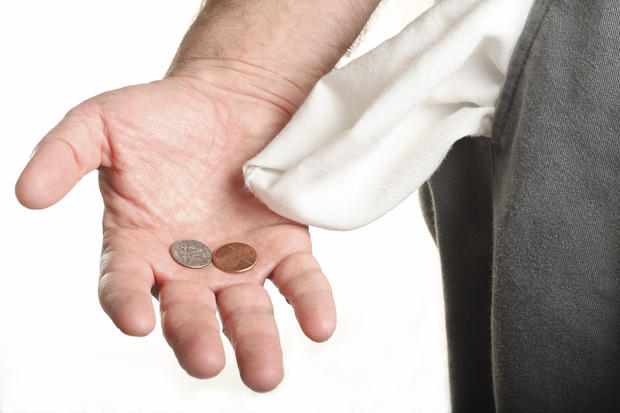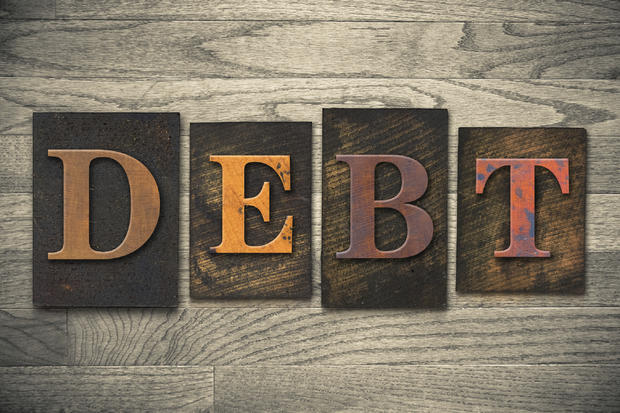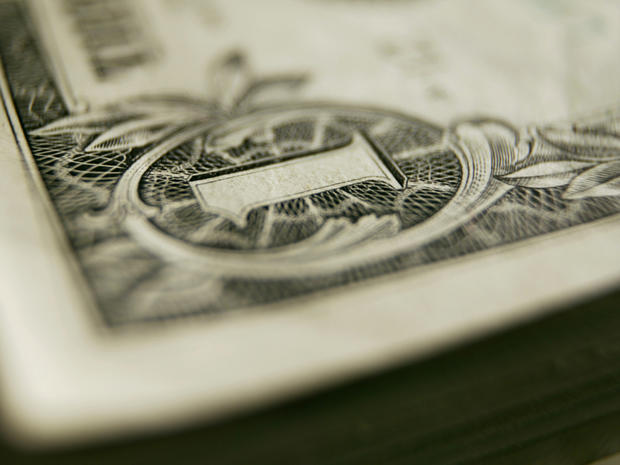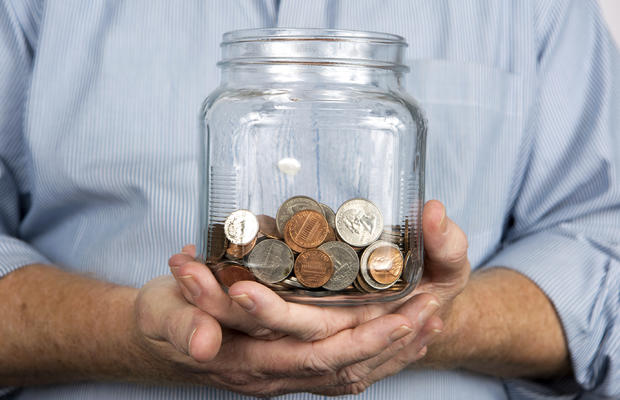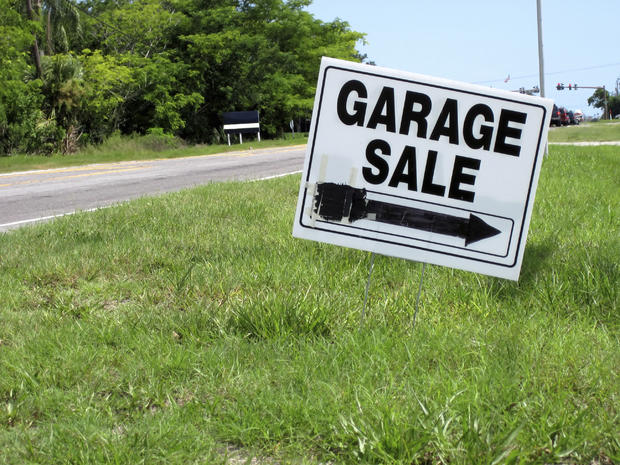9 ways to save money when you're making minimum wage
By Maryalene LaPonsie/MoneyTalksNews
Not long ago, MoneyTalksNews posted an article about how to save $1,000 by summer. It was packed with good ideas, but as one commenter mentioned, the list seemed mostly geared toward those making middle-class incomes.
What about those of you squeaking by on minimum wage? Is there any hope for you to get money into savings? After all, working full time on the federal minimum wage brings in just $15,080 a year before any taxes.
So let's assume you've already got your budget down to bare bones: You're reading this article on the library computer because there is no Internet at home, cable has been cut, and you have the thermostat set to slightly above freezing.
What else can you do? Here are 10 ideas worth considering.
Get out of debt
If you're only making minimum wage, you can't afford to be sending money to a car financing company, Visa, MasterCard or Discover.
Think about it this way: If you had no house payment, no car payment and no credit card payment, what's left? The only bills you may need to pay would be utilities, taxes, insurance, gasoline for your car and food for yourself. In many areas of the country, you could do that on $15,000 a year.
Now, housing is a major problem, I know. On your income, it might be easier to sprout wings and fly to Paris than own a home without a mortgage. We'll talk a little more about affordable housing options in a minute, but for everything else in your life, make living debt-free a priority.
Hoard gifts of money, tax refunds and other windfalls
To get out of debt and build up your savings, you need to make smart use of all those times you run into a little extra cash.
If you make minimum wage and have children, chances are you're entitled to the Earned Income Tax Credit. That could mean you get thousands of dollars from Uncle Sam each year. What are you going to do with it?
You might be eyeing the ripped couch in the living room and thinking it would be nice to have it replaced. Or maybe you'd like to buy the kids new bikes or even take a trip somewhere.
Until you get on firm financial ground, resist the urge to spend those windfalls. Put some of that windfall in the bank as an emergency fund and ship the rest off to your creditors. If you're debt-free (hooray!), bank at least half of it before you think about spending a cent.
Do the same with other unexpected money, whether it's the $5 you find in the parking lot or the $20 your aunt puts in your birthday card.
Save your pennies
Literally. Start a change jar and put your coins into it every night. At the end of the month, roll up the coins and put them in a savings account.
You won't retire rich off the money you collect, but you could end up with $10 or $20 a month to pad your savings account. That's not much, but when you're making $7.25 an hour, every little bit helps.
Skip processed food
Although I have never lived on minimum wage, I know all too well the feeling of barely scraping by. When you're living that close to the edge, I realize sometimes you want to be able to open a box and cook dinner or swing through the drive-thru for the dollar menu.
It may be tempting, but you'll feel better and save money on health care costs in the long run if you say goodbye to the canned, boxed and frozen meals. If you need some menu inspiration, check out budget cookbooks from your local library. ("Family Feasts for $75 a Week" and "The $5 Dinner Mom Cookbook" are two you may find worth reading.)
Park the car
After housing, your car is probably your biggest money pit. You need to pay for insurance, registration and gas, plus you might even have a monthly payment on it.
You'll free up tons of money in your budget if you can get rid of your car or at least drive it less often. Depending on where you live and your personal situation, you may be able to do one of the following:
- Sell the car and use public transportation exclusively.
- If you're a two-car family, sell one vehicle. If both adults in the house work, see if you can get opposite shifts or find jobs close to one another so you can drive together.
- If you have years left on a vehicle loan, sell the car and buy a cheaper one. If you owe more than it's worth, consider using your tax refund to pay down the balance so you can unload the car and its payment.
- Carpool with a co-worker or friend and split the car costs.
- Combine errands and appointments to minimize gas and parking costs.
Rethink child care
Child care is crazy expensive. If you have two income earners in your house and you are both making minimum wage, you might actually come out ahead if one adult stays home with the kids. Not only will that eliminate day care, you'll also save on gas and other work-related expenses.
(If that's not possible, read this article about other ways to lower child care costs.)
Sell what you can
Get serious about saving by scrutinizing everything you own.
You could have a yard sale to sell old clothes, trinkets and kitchen gadgets, but think bigger. Sell the furniture you don't need. Sell your movie collection. Sell the TV. I'm serious! The kids will find something else to do.
Having to sell your stuff may seem rotten, but if you put that money into savings, it can be incredibly freeing. It's a great feeling to know that if the car dies on the road, you have money in the bank and won't need to frantically call friends to help pay for a tow.
Find a roommate
Let's go back to the housing problem we mentioned earlier. Let's face it: Finding affordable housing can be a nightmare. Subsidized housing is available, but wait lists are long and the properties aren't always in ideal locations.
If you can't find a place with cheap rent, the next best thing may be to get a roommate. Another option might be to rent out a room if you are in a house. Either way, you get a break on your monthly payment as well as on the utilities.
You can find potential roommates on websites like Roommates.com and EasyRoommate.com. Sites like Craigslist or your local paper may be good places to place ads if you have a room to rent.
Regardless of how you find a roommate or renter, be sure to double-check their references. A background check, obtained through your local police department, may cost a few dollars but can be worth the peace of mind. Make sure you're not letting anyone potentially dangerous in your home, especially if you have children.
Move somewhere cheaper
Maybe despite your best efforts, you simply can't find an inexpensive place to live. In that case, it may be time to do something radical. You may want to move to a new city or a state with a lower cost of living.
That isn't permission to simply pack up and go without a place to stay or a plan for what to do when you get there. Instead, do your research first and line up a job in advance.
